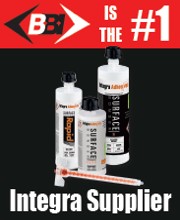- Home
- About ISFA
- Membership
- Events
- Resources & Training
- Countertops & Architectural Surfaces
- Sponsors
- Contact Us
Countertops Magazine ArchiveInbound MarketingINBOUND MARKETING: WHAT IT MEANS AND WHY IT’S IMPORTANT TO THE COUNTERTOP FABRICATOR Have you heard of inbound marketing or permission marketing? They are relatively new terms, because they are children of the Internet, and they imply a new environment of resistance to intrusive sales messages getting beamed at us from all directions. It’s about drawing people into your circle of influence because they are interested in what you are doing and what you are talking about. In very real terms, it’s the exact opposite of the “cold call.” And it has, potentially, direct application to anyone in the countertop industry. “We think of it as getting people to talk about a topic that we care about, without interrupting their day,” said Harry Hollander of Moraware, describing his company’s strategic foray into inbound marketing. “It’s like providing something useful to them instead of just creating an ad or telling them to buy our stuff. The guiding principle with all the content we produce is it should be something valuable so that when you read it you learn something.” When Moraware first entered the countertop industry in 2002 it concentrated heavily on trade shows and print advertising to educate and inform potential customers about its scheduling and estimating software. As recognition and adoption of the product grew, the company began to enjoy the benefits of word-of-mouth advertising. “Now it appears to be a very strong upswing of people finding us by searching on the Web (www.moraware.com),” Hollander explained. “We are getting people from places we didn’t know to look before. With traditional marketing we know how to reach the people who read trade magazines and attend trade shows. But they only represent a small percentage of all the countertop fabricators out there. And we want to hit that other, much bigger, group that is not as engaged in the industry. Those are the people who seem to be searching the Internet for information.” A few years ago Moraware began to shift its marketing resources gradually into online activities, such as publishing a blog on its website, email marketing, newsletters, converting help questions into useful content and setting up centers of information where fabricators were most likely to congregate (i.e., RemnantSwap.com). All this online activity has a direct influence on the major search engines, which then rank the company highly when people search for answers to questions unique to the countertop industry. “What we have found with all the articles we have done on the blog, on Facebook and on Twitter is those have ongoing value,” Hollander explained. “As soon as someone searches for countertop fabricator software, we rank really well in Google. That content stays on the Web basically forever. So, people will continue to find us today from an article we published a year ago.” Applying Inbound Marketing To Your Fabrication Business “I really think the concept applies to fabricators as well,” Hollander argued. “The problem is, the payoff is long term and it’s hard to justify it at the beginning. But if you think about the fact that people are going to buy a countertop only once or twice in their lifetimes, you just need to constantly remind them you are there and you are doing interesting things. You are educating those consumers so that when they are ready to make a purchase, they know where they can go. If you have that kind of credibility–being the source of information–it really does make a huge difference.” Brian Halligan of HubSpot , who is credited with inventing the term “inbound marketing,” argues that this type of marketing is especially effective for small businesses that deal with high-dollar products, long research cycles and knowledge-based products. Consumers of these products, such as countertops, are much more likely to get informed and hire someone who demonstrates expertise in the field, than respond to an ad or direct mail piece. In other words, when Mrs. Jones wants to get a new countertop, she is going to do research on that product – usually on the Web – before approaching a vendor for a quote. If your company already has content out there providing answers to her questions, and you are within her geographic area, chances are very good the search engines will put your articles in front of Mrs. Jones, because of the topical nature of the content and your geographical relevance. The net result is, just by publishing some useful content for Mrs. Jones to do her research, you are positioned as the authority on the subject. Who wouldn’t want to walk into a sales call with that kind of background? Good News/Bad News That’s the bad news. Everyone knows it’s hard work to write a blog, especially when you have nothing to say. The good news is you have a lot of very relevant comments to make, comments that hundreds of potential customers in your area want to read, if you can only think in terms of what THEY want to know. The truth is, you do it every day in your showroom, in the customer’s living room and on the phone. Tell the story of your technology, the amazing attributes of each of your products, tips on how to care for a countertop, the back story of exotic colors, how to select the right color combinations, etc., etc., etc. And do it in series of very short (about 500 words) blog posts at regular intervals. “It’s hard to do a blog,” conceded Harry Hollander, “and it’s not free. You have to identify someone within your organization who has the talent and interest, or you have to hire it out. Our goal up until a couple months ago was to do an article every week. We switched that to two times a week and next year, hopefully, that will be daily. Without dipping our toes in the water, we wouldn’t have come to this realization. So we had to start somewhere, but you do it at your own pace. We have just seen the more you do with this stuff, the more people find you on the Web.” Interestingly enough, the folks at Moraware have come to find that what most people might consider a major thorn in the side for a software company, namely a help line, has turned into a valuable source of content for inbound marketing. “People ask for help with a specific technical problem,” Hollander explained. “But there is always a bigger picture. So we do a specific help article and then we do it in video, because video always seems to rank really highly in Google and it’s easier for a lot of people to watch a video than to read an article. Then we do a blog post that provides context around why the question is an issue in the first place. So we have taken some random help question and turned it into, at least, three kinds of content. That same content also becomes part of our newsletter, Facebook and Twitter.” Do you see the connection? Countertop fabricators can turn some of their most challenging issues into content for a blog. And because they are issues that your customers care about, those articles will surface one day on the Web, and they will get read by a likely prospect. You Are In The Education Business “The ROI is there,” said Hollander, talking about his company’s investment in inbound marketing. “I’m not sure how we measure it, but it feels right. We have done surveys with our customers and the results confirm that a much higher percentage of our clients are introduced to Moraware through the Web than through traditional marketing channels. We are trying to find all those fabricators who are not in our current circle of people we talk to. Getting the word out to a much larger audience and education seems to be the best way to do that. It makes it a lot more fun, too.” See Also: Five Tips for a Successful Fabricator Blog See Also: Fabricator Profile: KB Surfaces About the Author |



